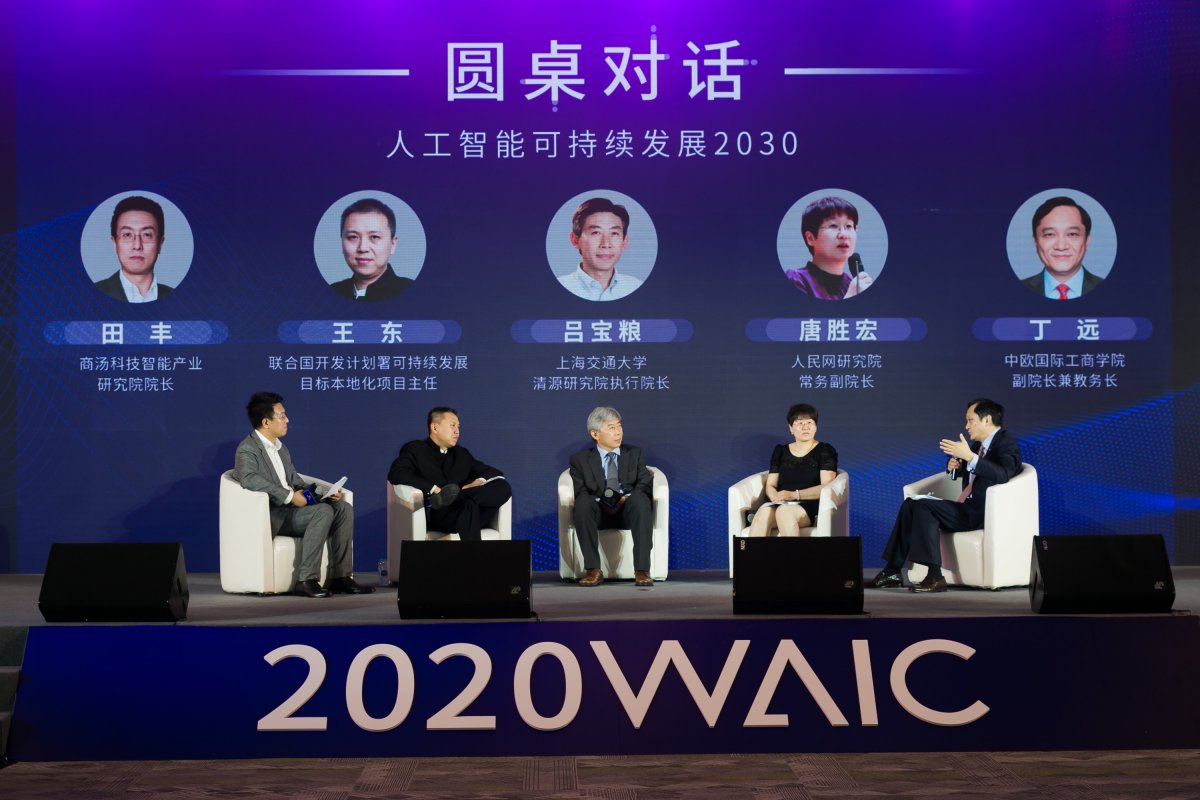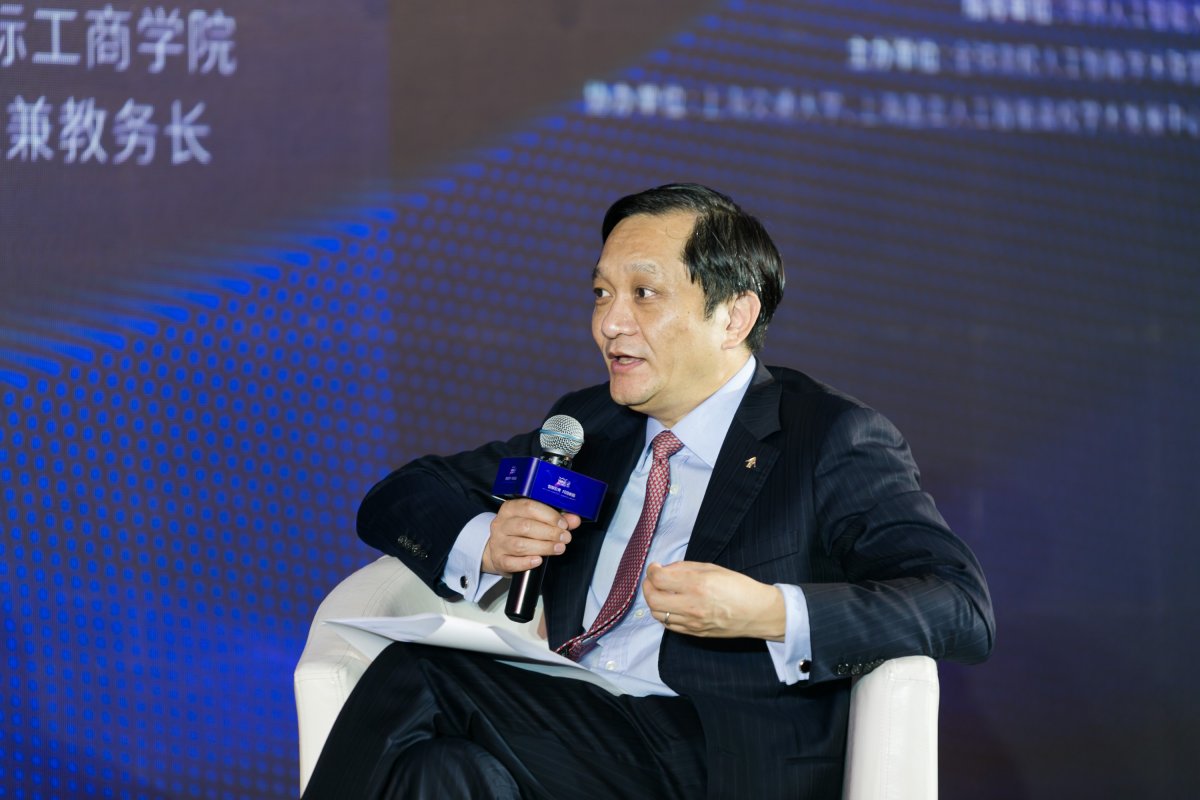CEIBS Dean Ding Yuan Shares Views on Human Development at 2020 World AI Conference
July 11, 2020. Shanghai – CEIBS Vice President and Dean Ding Yuan this afternoon participated in the “AI Sustainable Development 2030” roundtable dialogue during a sub-forum as part of the 2020 World AI Conference Summit. Professor Ding also held in-depth discussions about AI-related subjects with other speakers and guests at the forum, which was hosted in Shanghai over three days from July 9 to 11.
The sub-forum focused on the theme of “The Evolution and Trajectory of Global Artificial Intelligence” and was broadcasted live online. During the dialogue, Prof. Ding analysed the possible implications of AI in various dimensions, including human development, technological revolution, educational innovation and commercial applications. He also stressed the necessity to remain cautious about the potential risks associated with AI applications.
Prof. Ding noted during the session that AI is an extension of human intelligence, and is something which is both disruptive and ground-breaking. Using business school education as an example, he said AI could play a significant role in the teaching of some standardised courses – like accounting and finance – and may gradually replace the traditional class-based models.
According to Prof. Ding, while individuals, enterprises and education systems are able to adjust swiftly to cataclysmic disruptions – such as disease – by shifting their businesses online, they are often less willing to adapt to transformations like AI, due to sunk costs and path-dependency. Enterprises, in particular, he continued, need to build their capacities in advance, lest they could face a mismatch between human knowledge and intelligence on the one hand and the social demands on the other. This, he noted, may have severe social consequences.
Prof. Ding further stressed that any technology would be a double-edged sword. Although AI is a highly efficient assemblage of the workings of human brain, the application of it may carry risks that cannot be ignored. How to use it to promote human progress, for example, is an issue for which there is currently no answer and which calls for exploration from all sides, he added.
The “AI Sustainable Development 2030” roundtable dialogue is organised by the Global AI Academic Alliance and AI Young Scientists. Attendees also included Wang Dong, Localisation PM of UNDP Sustainable Development Goals; Tang Shengyong, Executive Vice President of Research Institute of People.cn; and Lyu Baoliang Executive President of Qingyuan Research Institute of Shanghai Jiaotong University. The meeting was chaired by Tian Feng, President of SenseTime Intelligent Industry Research Institute.
The 2020 World AI Conference Summit is the second such event hosted by the Shanghai Municipal People’s Government. This year, the event focused on the theme of “Intelligent Connectivity, Indivisible Community” and brought together government leaders and influential scientists and entrepreneurs in the AI field from around the world to share their views on AI-related technical frontiers, industrial trends and spotlight issues.














